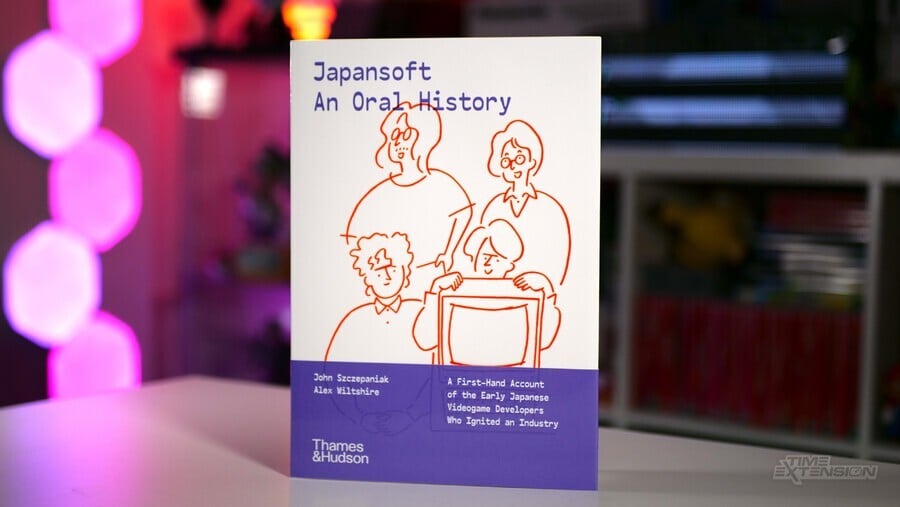
If you're a long-time reader of Time Extension, then you'll know we're big fans of John Szczepaniak – after all, he's one of our regular freelancers and has contributed some fantastic features to the site.
However, outside of that little disclosure, it's worth noting that we've admired John's work for many years, and consider his "Untold History" series – where he visited Japan to interview some of the unsung heroes of the video game industry – to be a masterpiece of modern games journalism.
A few years back, Read Only Memory published a one-volume abridged version of those books under the title Japansoft: An Oral History. Now, Thames & Hudson is republishing that book in paperback form to a wider audience, complete with an all-new preface which sees Szczepaniak chatting with some highly influential Western developers to get their view on the incredible impact of Japanese games.
This group includes the likes of Giles Goddard (Star Fox, 1080 Snowboarding), Richard Garriott (Ultima), Chipzel (Super Hexagon) and Robert Woodhead (Wizardry) – all people who have had some influence on (or have been influenced by) Japanese games.
It's an engaging and lively discussion, too, delving into the way the Japanese industry has evolved over the years and how series such as Ultima and Wizardry impacted players in Japan. There's even a little chat about the "kusoge" ("crap game") craze.
If you already own the previous version of the book, we're not sure it's worth the price of entry again, but this version is clearly aimed at a broader market, which it should achieve, given the lofty status of its new publisher.
As with the previous pressing, the bulk of the book consists of edited interviews with the likes of Harumi Fujita (Bionic Commando), Noritaka Funamizu (1943, Area 88), Manami Matsumae (Rockman), Nasir Gebell (Final Fantasy) and Tomohiro Nishikado (Space Invaders), as well as some lesser-known people.
What makes Szczepaniak's work all the more remarkable is that many of these individuals have never been given the chance to tell their story; it's fantastic that they've been given the opportunity before it's too late.
It's a shame that, as a paperback, it couldn't have been priced a little lower than the asking price of £30 – after all, the ROM hardback edition costs that – but there's no denying that this is a seminal piece of work in the study of Japanese gaming and one that all budding historians should own.
